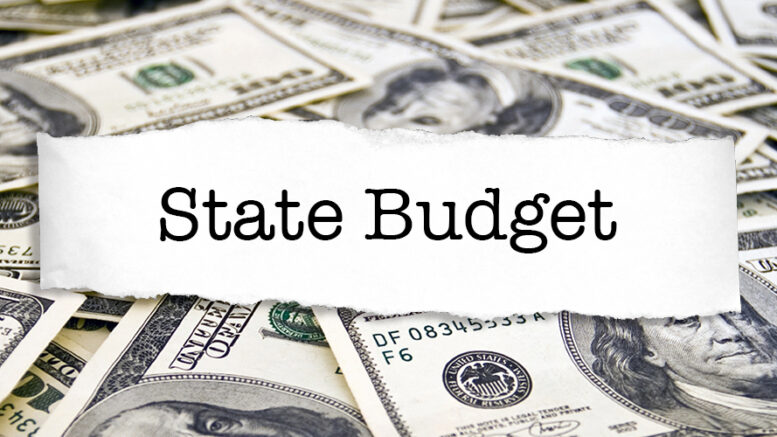OKLAHOMA CITY – Legislative leaders announced a Fiscal Year 2021 state budget agreement Monday designed to hold education funding harmless while limiting most budget reductions to 4% or less amid the COVID-19 pandemic.
“This is a far better budget than many expected and that should come as a relief to the citizens who rely on core services and the agencies that serve them, given the effect of both depressed oil and gas prices and the pandemic on state revenues,” said Senate President Pro Tempore Greg Treat, R-Oklahoma City. “We successfully avoided the catastrophic cuts some had feared, and I thank the budget chairs and their committees for their hard work and leadership during this difficult time.”
Under the agreement, most of the $1.4 billion, or 17%, revenue hole Gov. Kevin Stitt projected last month is filled by using reserve funds, cutting one-time spending, temporarily redirecting non-appropriated money into the budget, and agency appropriation reductions of 4% or less in most cases.
“The Legislature is pleased to have an agreement stabilizing the budget to the fullest extent possible under the numbers Governor Stitt provided,” said House Speaker Charles McCall, R-Atoka. “The Legislature is strongly united behind this agreement and will enact it quickly to provide certainty to state services at a time it is sorely needed.”
The agreement calls for a total budget of $7.7 billion, which is $237.8 million, or 3%, less than the FY 2020 budget.
Education
Education was prioritized above all else. With federal COVID-19 relief funds considered, common and higher education would receive no reduction next year – and may receive more money.
“The Legislature kept its promise and protected education. We are not letting a virus roll back the historic investments Oklahoma has made in education the past few years,” said Senate Appropriations Chairman Roger Thompson, R-Okemah.
Under the agreement, the State Department of Education’s temporary appropriation reduction is 2.5%, or $78.2 million, of its $3 billion appropriation. Recent teacher pay raises will not be impacted.
With relief funds considered, though, common education is projected to receive more money next year than this year. Oklahoma’s $200 million in COVID relief money for common education fully offsets the temporary state funding reduction of $78.2 million, or 2.5%, to common education.
“We are very pleased to agree on an innovative and creative budget that meets our goal to protect classroom funding from reductions. As the branch of government closest to the people, the Legislature is fully confident this is how Oklahomans want their tax dollars prioritized when times get tough,” said House Appropriations and Budget Chairman Kevin Wallace, R-Wellston.
State agencies
Most other agencies receive effective reductions of 4% or less, with core service agencies such as health care, public safety and transportation receiving smaller reductions in some cases, while other agencies with mandatory upcoming spending are held flat or slightly increased.
“The executive branch predicted significantly larger budget cuts would be needed to balance the FY 21 budget. The fact that the Legislature was able to keep reductions to 4% or less should come as welcome news to state agencies,” Treat said. “In addition to the work the Legislature has done, Governor Stitt has the ability to do more to mitigate reductions through many of the emergency funds at his disposal and his authority to innovate within the state agencies he manages directly.”
Oklahoma has received more than $1.25 billion in federal relief funds for COVID-19 expenses – far more than the $237.8 million spending reduction in the budget agreement.
“Now is a great time for Governor Stitt to use the strong management skills he pledged to bring to government. We expect Governor Stitt will make good use of his proven business acumen to help agencies maintain service levels to the public,” McCall said.
Outlook ahead
According to the National Conference of State Legislatures, nearly every state has revised revenue projections downward and expects to enact reduced budgets due to COVID-19’s effect on the economy and state government revenues.
“As we look at the national picture, it is clear accurate revenue projections are simply impossible amid all this volatility,” Wallace said. “When revenue projections change as volatility decreases, state budgets here and everywhere should look better. In the meantime, the Legislature is enacting a workable budget with smaller cuts than other states are making.”
Legislative budget leaders said the $1.4 billion revenue hole projected by Governor Stitt was used in building the budget, but that the projection could change, allowing for midyear budget adjustments.
“We still remain circumspect about the data used to create the executive branch’s projections, but we worked off their numbers. We will consider supplemental appropriations to restore some of these reductions if revenues improve as we expect them to,” Thompson said.
The FY 2020 budget was the largest in state history, and FY 2021’s would be among the largest, as well.
“We’ve been here before, but today Oklahoma is much better positioned to face a fiscal challenge like this. Prudent actions taken in response to the last budget hole three years ago and decisions to save money last year left Oklahoma’s fiscal position stronger than ever and built up strong reserves that have been a saving grace during this unforeseen worldwide pandemic,” Treat said.
Under the legislative agreement, the state would head into FY 2022 with an estimated $600 million in savings funds, apportionment reforms and other flexibility to help stabilize the FY 2022 budget if necessary. In addition, agencies typically have close to $1 billion in agency-specific reserves at their disposal throughout every fiscal year.
“Unlike the last budget hole three years ago, this one won’t require revenue raising measures and should end when the economy restarts,” McCall said. “Oklahoma will bounce back strong and move forward.”




Be the first to comment on "State: Legislature reaches fiscal year 2021 budget agreement"